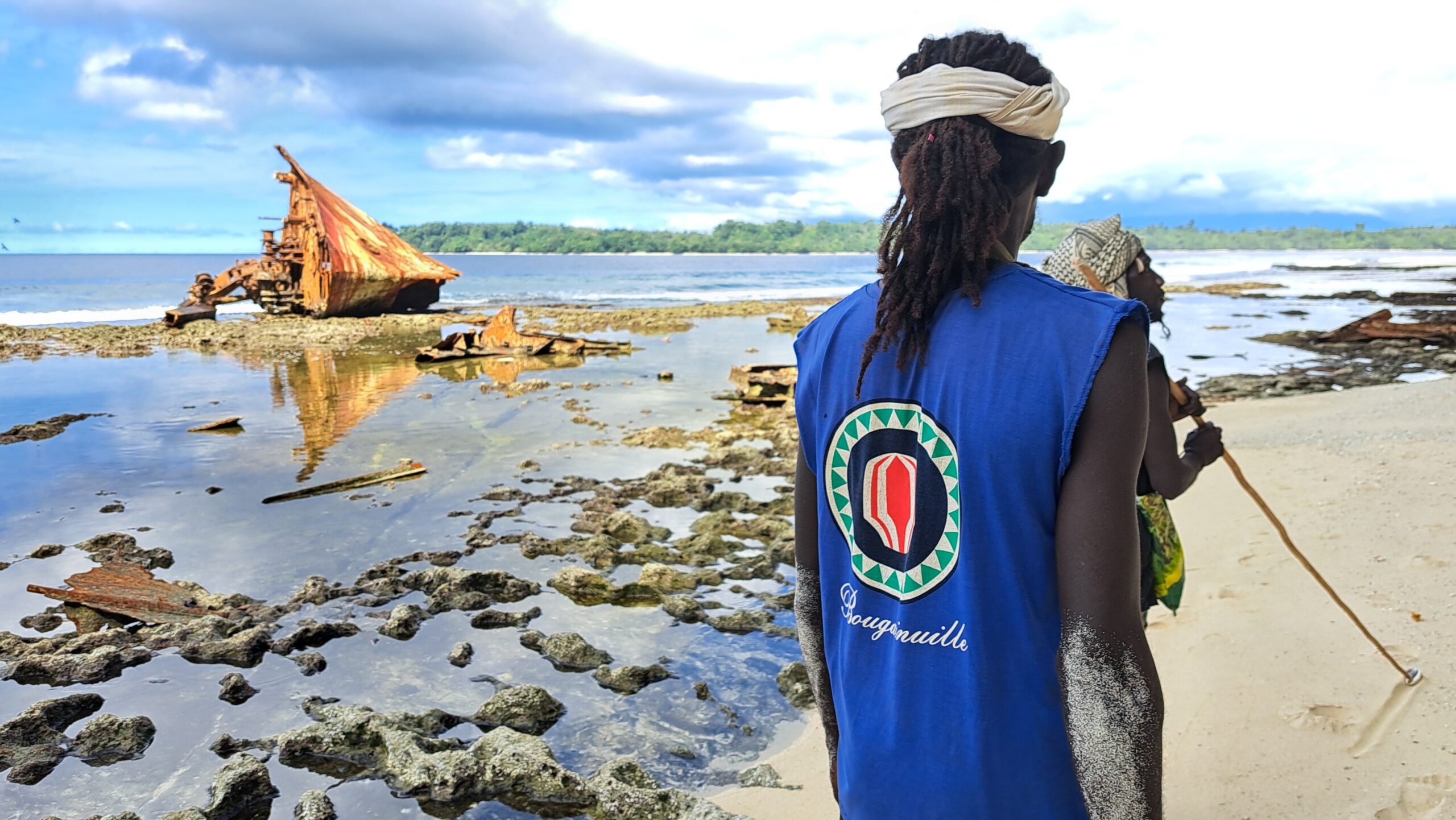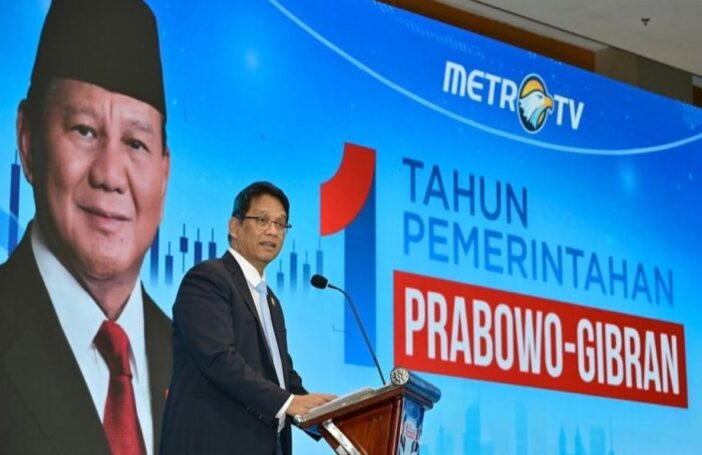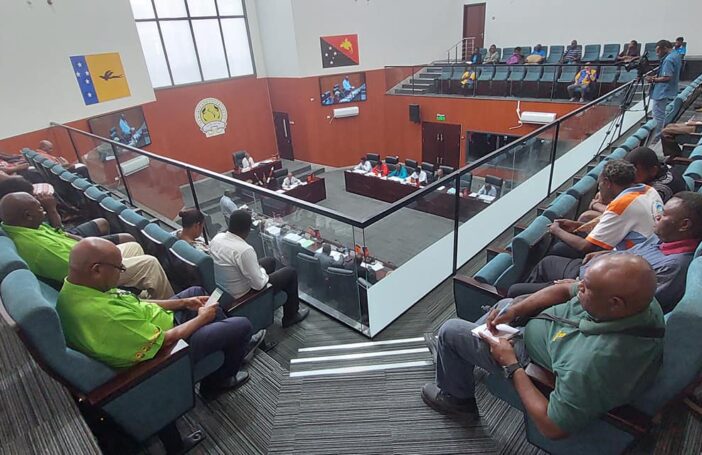Discussions about decentralisation have been a central feature of PNG politics since before independence. The highly centralised nature of Australian colonial governance led to the creation of PNG’s provinces. This effort was spearheaded by Bougainville’s leaders who had many longstanding reservations about being a part of PNG, even before the development of the Panguna mine.
Since their establishment in 1976, laws regarding how provinces function have been passed, amended, or repealed several times, most notably in 1995 with the passage of the Organic Law on Provincial Governments and Local Level Governments (OLPGLLG). Since then, the term “special autonomy” has become popular, but not much has been done to unpack the meaning of it or what the implementation of special autonomy might mean for people in the cities, towns, and villages of PNG. Despite this, leaders in the provinces of East New Britain (ENB), Enga, and New Ireland continue to aspire to this status, while Bougainville received it as part of a peace agreement in 2001.
I recently spent time in Bougainville and East New Britain as part of my PhD fieldwork to learn what special autonomy means to leaders and local people.
The Bougainville Peace Agreement (BPA) is based on three pillars, namely: autonomy, weapons disposal, and a referendum. Autonomy allowed for a locally created Bougainville Constitution and granted the province’s parliament rights and powers that would increase over time. These three pillars are broadly seen as a pathway towards independence, rather than as a permanent state of affairs. This, in part, helps to explain why in the 2019 referendum the public voted overwhelmingly in favour of independence (98.31%) and roundly rejected the alternative option of greater autonomy. The first two steps had been taken and it was time for the third and final pillar. Formally known as the Autonomous Region of Bougainville, but often referred to colloquially as Bougainville or simply ARoB, the former province has had special standing within PNG and its Constitution since autonomy was granted in 2005. Weapons have, for the most part, been turned in and destroyed — although most people there are sure that a few choice arms remain hidden. With these two pillars fulfilled, many people are confused about why the national government is taking so long to move on a referendum — something they see as non-negotiable.
While support for autonomy and subsequent independence is found across Bougainville, many citizens are dissatisfied with the status quo under special autonomy. The rural Konnou Constituency in South Bougainville is among the last to feel the effects of government policies and receives limited services. In a conversation in Wisai villages of Konnou, one local exclaimed: “long sait bilong otonomi em olsem, ating mipela go according nem tasol, na tru tru bun bilong em, but mit bilong em mipela i no teistim.” (“Regarding autonomy, I think we are just going according to the name only and the bones of it, but we have not tasted the meat of it yet.”) In a neighbouring village, a chief likened autonomy to a baby that had been born, but whose beauty they had not yet seen, further exclaiming, “We just plant, harvest, kaikai, wetim dai”. (“We just plant, harvest, eat, wait to die.”). Civil servants in the provincial capital Buka, and at least one ex-combatant turned presidential hopeful, agreed that the implementation of autonomy as guaranteed by the BPA is a complex process that has been hampered by bureaucracy and deliberately slowed by national leaders.
Implementing autonomy by drawing down powers from Port Moresby to Buka is a slow process. Although the Sharp Agreement has accelerated the process, there are still complicated pieces of legislation to be drawn up, departments to be designed and staffed, and policies to draft. Statecraft is not a fast-paced affair. Translating these legal actions into services and then extending them to Bougainville’s many rural areas is an unenviable task. Whether or not ARoB can be ready for independence by the 2027 target, scores of the ABG’s dedicated civil servants continue to engage in preparations and in bringing government to the people.
East New Britain has a long legacy of outspoken leaders’ seeking control over local resources and governance. The Mataungan Association of the late 1960s and early 1970s pushed back against colonial controls over agriculture and land, while leaders in the 1980s and 1990s seriously discussed secession. The creation of a body aspiring for special autonomy status in East New Britain in 2001 was the result of dissatisfaction with the overhaul of provincial and local level government in the 1995 OLPGLLG that took powers from the provinces and gave them to national parliament. The committee is still active but has undergone several iterations and is now focused on securing administrative, financial, and political autonomy for the province. It also supports existing Local Level Governments (LLGs) to know their responsibilities and powers, including the drafting and implementation of ward and LLG by-laws.
Support for special autonomy for ENB is strong in Rabaul and Kokopo, an area dominated by the Gunantuna people, more commonly referred to as Tolai. In the farther reaches of the province, however, support for autonomy comes with reservations. Fewer services are available the further one gets from Kokopo and Rabaul, and the several Indigenous peoples of ENB are not as united as Bougainvilleans. A tok stori (interview) with a Mengen nonagenarian in Pomio District highlighted these differences: he stated that, to him, “East New Britain i nogat mining because Tolais don’t share well” (“East New Britain does not have meaning because Tolais don’t share well”). A man from the Nangas in the North Baining area of Gazelle District said that provincial leadership is “wansait gavman” (one-sided government). Many others expressed similar feelings — that the ENB government is by Tolais for Tolais, thus making special autonomy a Tolai project. Residents in both locations see themselves as second-class citizens in their own province, with revenues from their resources like timber, fish, coconut, cacao, and palm oil flowing to Kokopo and then on to Port Moresby — and the small amount returned never seeming to make its way back home. Both districts cover large rural areas and have low levels of development and few government services. Leaders in the past have floated the idea of breaking away from ENB to form a Central New Britain Province.
In conclusion, special autonomy as a form of decentralisation is a popular idea in certain provinces of Papua New Guinea. However, in Bougainville and East New Britain the term has very different meanings. In Bougainville, autonomy was only ever a means to an end after decades of uncertainty about the relationship with PNG culminated in a brutal civil conflict. In ENB, the relationship with PNG has mostly been accepted, but questions about who should have control over resources are hotly debated between the national and provincial governments, as well as between the districts and the provincial government itself, and likely won’t be solved by a devolution of powers to the provincial level.





I like that you have highlighted that AROB’s case is not similar to ENB or any other provinces wanting special autonomy.
Tenkiu tumas James, for sharing part of your findings. And I’m looking forward to your more from your completed work. We appreciate important contributions that your research will make to scholarship and other important applications. Mau mani (Clare Ricter).
Thank you, James, for sharing part of your study.
Thanks for outlining your findings so clearly. Super useful for me to better understand the context of our work in Bougainville.
Cool piece of reporting on ongoing research, James. Thank you!
Very Informative piece James . Thankyou!